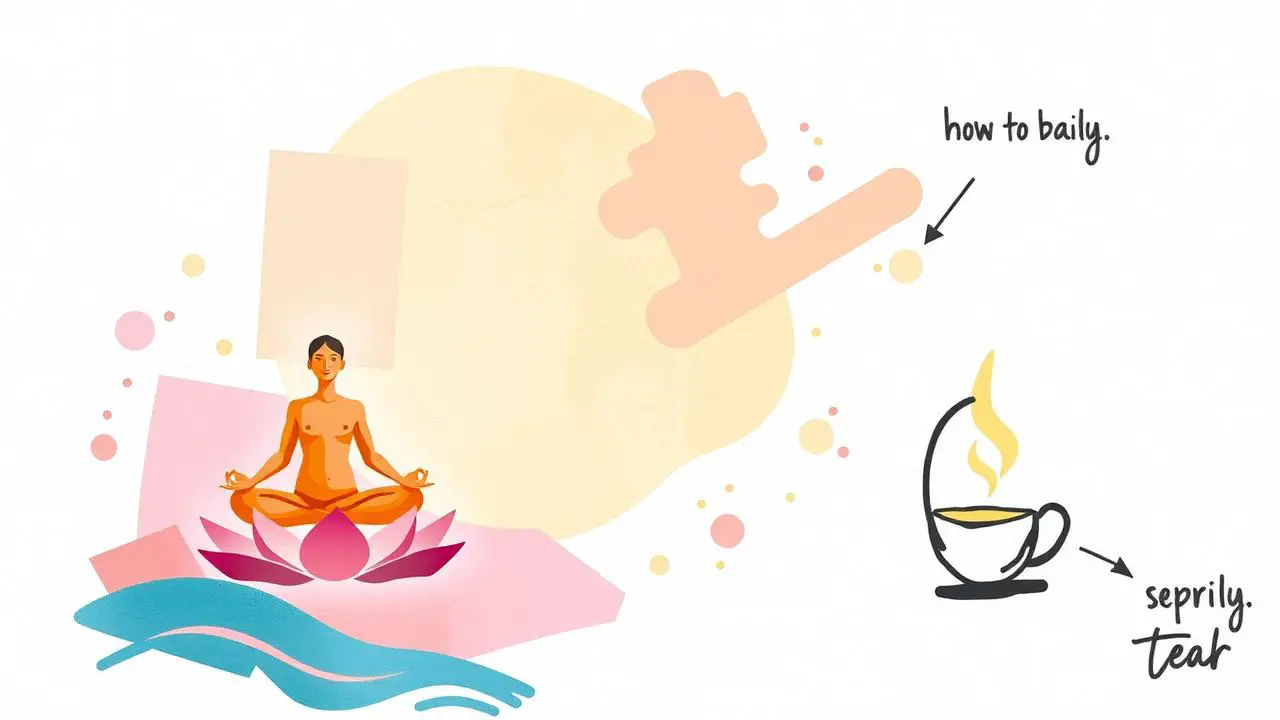Having no friends can take a toll on our mental health. Without social support and companionship, it can be difficult to cope with everyday life.
Having no friends can have a negative impact on mental health as it can lead to feelings of loneliness, isolation, and depression. It can also affect self-esteem and confidence, making it difficult to form new relationships. It is important to seek support and build connections with others to improve mental health and well-being.
This article will explore how not having any close friends can lead to a decrease in mental wellbeing.
The lack of meaningful friendships can cause us to feel isolated and lonely. This can lead to a decrease in self-esteem and confidence, as well as feelings of worthlessness and helplessness. These negative thoughts and emotions can have far-reaching effects on our mood, behavior, and overall mental health.
We will discuss the potential risks associated with having no friends, as well as possible steps that we can take to improve our mental wellbeing in this situation.
Isolation and Social Isolation
The effects of social isolation can be devastating for mental health.
Social media has created an environment where people are more alone than ever before.
With no one to talk to, it’s easy to feel disconnected from the world and start to become anxious or depressed.
Self-reflection techniques can help people gain control over their emotions by maintaining a positive mindset and finding purpose in life.

It is important to take time out of your day for yourself and focus on emotional regulation by managing stress, setting realistic goals, and taking care of yourself physically and mentally.
These techniques also help you be mindful of how social media affects your mental wellbeing, as well as learn how to create meaningful relationships with others.
By focusing on self-care and reflection, it is possible to build a strong foundation that will help you cope with the effects of isolation.
Taking the time to cultivate a positive outlook can make all the difference when it comes to improving your mental health.
Moving forward, it’s important to understand the implications that come with lack of connection…
Mental Health Implications of Loneliness
What are the mental health implications of having no friends?
The psychological effects of social isolation can be far-reaching and profound. Studies have shown that a lack of social connections can lead to feelings of loneliness, depression, and decreased self esteem.
Furthermore, without the opportunity to practice and develop social skills, individuals may find it difficult to establish relationships with others in the future.
Additionally, due to feelings of low self worth and despair, those without friends may turn to substance abuse as a way to cope with their emotions.
It is important for those who experience isolation due to a lack of friendships to prioritize self care practices such as physical activity and healthy nutrition. Engaging in regular mental health check-ins and activities that bring joy are also beneficial for managing loneliness.
Finally, engaging with supportive communities or organizations that promote social inclusion can help individuals gain meaningful connections that will improve their overall well-being. As loneliness and depression often go hand-in-hand, understanding how they can interact and affect an individual’s mental health is key in order to manage these emotions effectively.
Loneliness & Depression
Loneliness and depression often go hand in hand, as isolation and lack of connection can lead to a decrease in overall wellbeing. Those with no friends may frequently grapple with poor self esteem, heightened risk taking behaviors, and an increased mortality rate due to neglecting their physical health.
To combat these issues, individuals can take steps to start forming connections:
- Reach out online – Social media use provides the opportunity for users to connect with others all over the world from the comfort of their own homes.
- Attend events – Whether it is a local meetup or a festival, attending public gatherings can help people find like-minded individuals with similar interests.
- Take a class – Joining group classes such as cooking or yoga can be an excellent way to find new friends while also learning something new.
- Get involved – Volunteering or joining local clubs are great ways to meet people who share your same passions and hobbies.
Taking actionable steps towards finding meaningful relationships is essential for mental health maintenance and wellbeing. With further effort put into forming connections, those without friends can start building bridges between themselves and others, leading them back on the road towards a healthier mindset.
Stress & Anxiety
The lack of friends can be extremely detrimental to one’s mental health. Not having a close circle of peers can lead to feelings of loneliness, isolation and depression. It can also place an individual at risk for developing unhealthy stress and anxiety levels due to the absence of emotional support and social interaction.
Although it may seem difficult, it is possible to improve our mental health even without the presence of friends. Self-care is an important part of managing stress and anxiety without the help of others. Practicing mindfulness, engaging in physical activities, getting enough restful sleep, and eating a nutritious diet are all key components in nurturing your mental well-being. Additionally, it is important to develop healthy communication skills as well as build upon our existing social skills if we want to eventually create meaningful connections with others. Utilizing positive coping strategies such as yoga or journaling can also be beneficial in managing stress levels that result from not having any friends.
By taking these steps to prioritize our own self-care, we can provide ourselves with some emotional stability even when we don’t have anyone else around us for support. We must learn how to trust ourselves first before relying on someone else for comfort – this way we can begin moving forward on our journey towards better mental health.
Transitioning into the next section, let us explore further how loneliness affects cognitive impairment.
Cognitive Impairment
It is clear that having no friends has serious implications for an individual’s mental health and well-being. Cognitive decline can be expected when faced with long-term isolation, as the lack of social interaction can lead to feelings of loneliness and depression.
Research has found that loneliness has a direct impact on cognitive functioning due to increased stress levels, which can cause long-term damage to the brain. Without adequate stress management techniques, those without friends are more likely to experience mental health risks such as anxiety or suicidal thoughts.
Moreover, a lack of social support can also lead to lower self-esteem, which may further compound the risk for developing a mental illness. This is why it’s so important for individuals who are feeling isolated and lonely to find ways to manage their stress levels and connect with others in safe, meaningful ways.
Understanding the potential negative impacts of having no friends on one’s mental health is key for taking proactive steps towards bettering oneself emotionally and socially. Moving forward, we will explore how individuals can cope with the effects of isolation on their mental health.
Coping Strategies
Cognitive impairment can be difficult to cope with, especially when it leads to feelings of loneliness and isolation.
Having no friends can have a significant impact on one’s mental health, making it important to find ways to foster meaningful connections in spite of the circumstances.
Self-care techniques like positive self-talk and practicing mindfulness can help make a difference.
It is also possible to build virtual relationships and seek online support by joining forums or online communities that are centered around shared interests.
Managing expectations is key — instead of focusing on how different life used to be, focus on building new relationships and discovering new hobbies that bring joy during this time.
Finding balance with situations such as having no friends can be challenging, but it is worth taking the time to work through these emotions so that mental health does not suffer any further.
Taking proactive steps like developing coping strategies for loneliness can help lead the way towards improved mental wellbeing.
Frequently Asked Questions
What Is The Difference Between Isolation And Social Isolation?
Isolation and social isolation can be two very different experiences, yet they both have a profound effect on one’s mental health. Despite their differences, they are often confused as one in the same.
While isolation could easily be seen as an individual simply choosing to be alone for a period of time, social isolation goes far beyond that. It can involve feeling disconnected from society and having difficulty building relationships or seeking support from others.
Unfortunately, it is quite common for those with shyness or low self-confidence to feel socially isolated, but with some effort and understanding, these feelings do not have to last forever. Overcoming shyness and developing confidence in one’s ability to form meaningful connections can mean the difference between feeling trapped in loneliness and finding joy in friendship and companionship.
Understanding relationships and seeking support are key steps to breaking free from the cycle of social isolation. With the right attitude and approach, anyone can start building connections that will benefit their mental health.
How Can I Tell If I Am Feeling Lonely Or Depressed?
Feeling lonely or depressed can be difficult to differentiate, but with some self-reflection and mindfulness, it’s possible to understand which of these emotions you are experiencing.
Social anxiety often accompanies feelings of loneliness, and online connections can be a great way to ease this feeling by reaching out to supportive friends and family.
Support groups can also be beneficial in providing comfort and understanding in times of difficulty.
Mental health professionals can provide additional guidance for distinguishing between loneliness and depression, as well as offering strategies for self care.
With the right resources, you can become more aware of your emotions and find ways to cope with them.
What Are The Long-Term Consequences Of Having No Friends?
Having no friends can have long-term consequences on an individual’s mental health.
It is important to find support, develop self care strategies and cultivate hobbies to maintain a healthy level of resilience.
There are also many myths about loneliness that need to be dispelled in order to recognize the importance of cultivating meaningful relationships in our lives.
Focusing on activities you enjoy, engaging in positive self-talk, and seeking out social support can help you manage feelings of loneliness and cultivate a more fulfilling life.
How Can I Make New Friends?
Seeking support, building confidence, and developing relationships can all be difficult when one has no friends. However, it is possible to make new friends and find a supportive community.
Start by overcoming shyness and seeking out activities that you can do with others. From there, find ways to engage with people who share similar interests as you, and don’t be afraid to reach out for help along the way.
Finding a sense of belonging in a new community can bring about tremendous emotional benefits and help increase self-esteem. With the right mindset and some effort, anyone can make meaningful connections with new friends and find a supportive network that lasts.
Are There Any Psychological Therapies That Can Help Me Cope With The Effects Of Having No Friends?
For those struggling with the effects of having no friends, there are psychological therapies that can help.
Introversion, building trust, managing anxiety, and boosting self confidence are important aspects to consider when attempting to make new connections.
Through social networking and online communities, people can start to engage in conversations with like-minded individuals who share similar interests.
Additionally, cognitive behavioral therapy (CBT) is an effective way to tackle the underlying causes of loneliness and low self esteem.
Therapy can provide the support necessary to break out of isolation and foster meaningful relationships that will lead to lasting emotional well-being!
Can a Lack of Relaxation and Recreation Contribute to Social Isolation and Mental Health Issues?
A lack of relaxation and recreation can contribute to social isolation and mental health issues. It’s important to understand the difference between relaxation and recreation. While relaxation helps to reduce stress and improve mental well-being, recreation involves actively engaging in enjoyable activities, which can help combat feelings of loneliness and boost social connections.
Conclusion
Having no friends can have a detrimental effect on one’s mental health. The long-term consequences of social isolation can be devastating, as it contributes to feelings of loneliness and depression.
It is important to recognize the signs of loneliness and take steps to address it before becoming overwhelmed by it.
Making new friends can be daunting but it is worth the effort in the long run. There are many psychological therapies available to help individuals cope with the effects of being socially isolated.
Finding supportive people who understand and accept you for who you are can be likened to a breath of fresh air, as it helps combat feelings of loneliness and despair.
It may feel like an uphill battle but having no friends doesn’t have to be a permanent condition. Taking steps towards improving your social life is a journey worth taking – the rewards will be worth their weight in gold!




